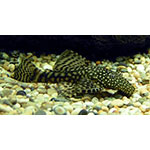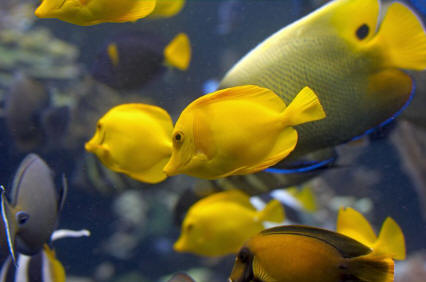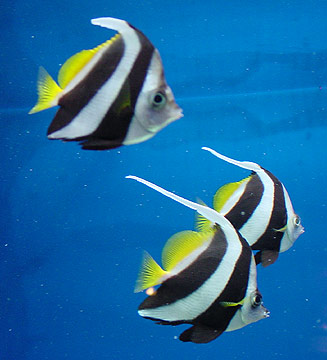Common Bristlenose Pleco

|
Scientific Name: Ancistrus cf. cirrhosus Price: Upon Request Origin: South America Family: Loricariidae NOT AVAILABLE NOW |
|
Other Names: Bushy Nose Plecostomus, Bushy Nose Plecos, Bristle Nose Pleco, Bushy Nose, Bristlenose Plecostomus |
|
Technical Info
Temperature: 23 - 27 ℃
pH: 6.5 - 7.4
GH: 6 - 10
Max size: 15 cm
Min Tank size: 100 Ltr
Position in Aqua: Bottom swimmer
Description
The Common Bristlenose Pleco is mainly brown, with a mottling of lighter areas. The mouth area and nose are covered in short, whisker-like appendages, which are used for detecting food. There are also many color and fin variations available. Common Bristlenose Pleco make good additions to any community aquarium.
Food
Feeding the Common Bristlenose Pleco is not difficult due to the fact that it is not a picky eater. Feeding off the bottom of the aquarium, it gets most of its nutrition from left over food and algae. If there is no algae or left over food present, supplement with high quality flake foods, algae wafers and other high quality plant based foods.
Breeding
The Common Bristlenose Pleco is relatively easy to breed and breeding occurs mostly in the winter months. This Plecostomus can be triggered to breed in the late fall by performing a 75% water change. The eggs are usually deposited on a piece of driftwood where the male will stay to guard them. The fry will become waterborne in approximately 10 days, at which time, they should be removed and raised in a separate aquarium. Feed the fry mashed and peeled peas.
Compatible with
Relatively peaceful but territorial with conspecifics and similarly-shaped species. Can be kept in friendly community aquariums and can work with smaller cichlid species.
Note
Adult males possess well-developed odontodes on the pectoral fins and opercle and tentacles on the head while females do not.

